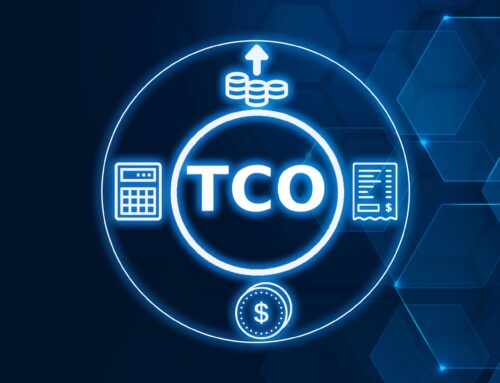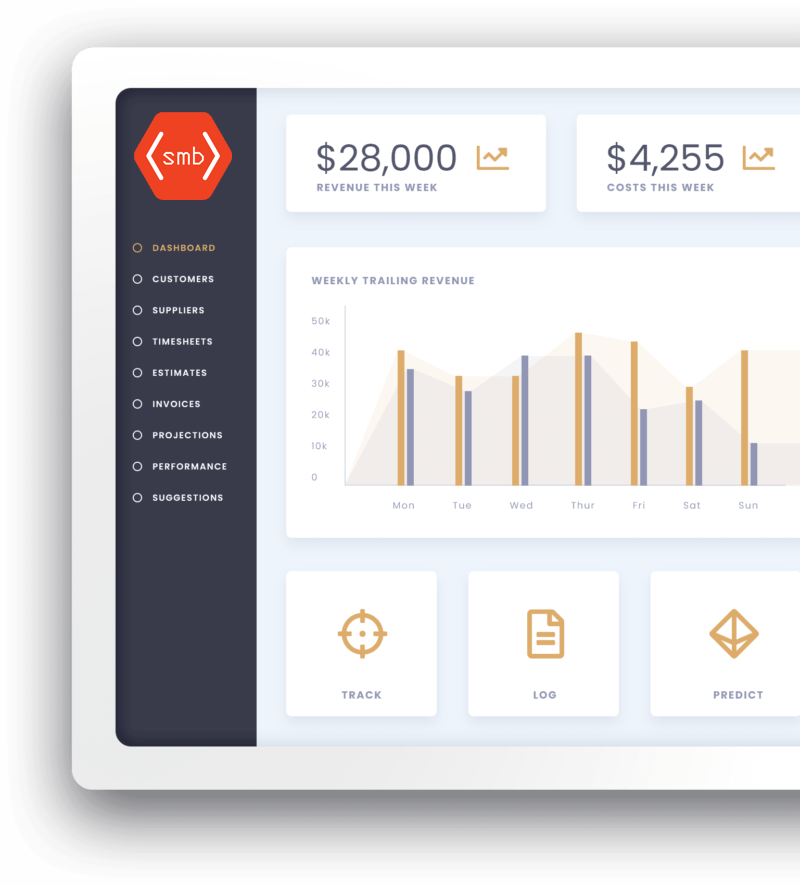
Continued from Part 2, Aligning CRM Objectives with Customer Needs
Challenges and Solutions
Addressing Common CRM integration challenges in Objectives
Implementing CRM strategies has its challenges. Businesses often need help with the effectiveness of their CRM objectives. Recognizing and addressing these CRM integration challenges is crucial for successfully executing CRM strategies.
- Data Silos: One common challenge is the existence of data silos within organizations, where customer information is scattered across different departments. This fragmentation can lead to inconsistent customer experiences and hinder effective data analysis.
- Integration of Technology: The integration of various CRM technologies can be daunting. Ensuring that different systems and platforms communicate effectively and provide a unified view of customer data is often complex.
- Change Management: Implementing a CRM strategy often requires significant changes to organizational processes and culture. Resistance to change from employees, lack of training, or inadequate understanding of the CRM system can impede progress.
- Maintaining Data Quality and Privacy: Ensuring the quality of customer data and maintaining privacy and compliance with regulations like GDPR are ongoing challenges in CRM management.
Offering Practical Solutions
A strategic and proactive approach is required to overcome these challenges. Here are some solutions:
- Overcoming Data Silos: Implementing an integrated CRM system that consolidates data across departments can help in breaking down silos. Regular data audits and cleanups can also ensure data accuracy and consistency.
- Seamless Technology Integration: Choosing CRM systems that offer compatibility with existing tools and scalability for future needs can simplify the integration process. Investing in APl-driven platforms can also facilitate smoother integration.
- Effective Change Management: To address resistance to change, involving employees in the CRM implementation process is crucial. Offering comprehensive training and highlighting the new system’s benefits can foster acceptance and ease the transition.
- Ensuring Data Quality and Compliance: Regularly updating and cleaning customer data can help maintain its quality. Businesses should stay informed about regulatory changes and implement robust data security measures to ensure privacy compliance.
Navigating the challenges in setting and achieving CRM objectives requires technological solutions, strategic planning, and organizational commitment. By addressing these challenges head-on with practical and thoughtful solutions, businesses can ensure that their CRM strategies are robust, effective, and capable of adapting to the evolving landscape of customer relationship management.
Integrating CRM Objectives Across the Organization
Comprehensive Integration for Company-Wide Impact
The effectiveness of CRM objectives hinges on their integration across all levels and departments of an organization. CRM is not just the responsibility of a single team or department; it’s a strategic approach that should permeate the entire company. This CRM integration ensures that everyone in the organization understands and contributes towards a unified goal of enhancing customer relationships.
Effective integration involves ensuring that CRM objectives are communicated clearly and are understood by all employees, from top management to front-line staff. Each department should know how their role fits into the larger CRM strategy and the impact of their actions on customer experiences.
The Role of Leadership in CRM Integration
Leadership plays a pivotal role in the successful integration of CRM objectives. Leaders must champion the CRM initiatives, demonstrating their commitment through actions and communication. They are responsible for setting the tone and culture that prioritizes customer relationships.
- Communication: Leaders should communicate the CRM objectives and their importance to the entire organization. This communication should be ongoing, clear, and consistent, ensuring everyone is aligned with the goals and understands their role in achieving them.
- Training and Resources: Providing adequate training and resources is crucial for successful CRM integration. Employees should be equipped with the necessary skills and tools to execute the CRM strategy effectively.
- Employee Engagement: Encouraging employee engagement in CRM initiatives can lead to more innovative ideas and better execution. Involving employees in decision-making processes and listening to their feedback can foster a sense of ownership and commitment.
- Incentivizing CRM Goals: Aligning incentives and performance metrics with CRM objectives can motivate employees to focus on customer-centric outcomes. Recognizing and rewarding efforts that contribute to CRM success can reinforce its importance.
Integrating CRM objectives across an organization is a complex but vital process. It requires clear communication, leadership support, appropriate training, and an organizational culture that values customer relationships. When every member of the organization is aligned and working towards the same CRM goals, the company can provide cohesive and superior customer experiences, leading to stronger relationships and sustained business growth.
Sustainability and Ethical Considerations
Ethical Aspects of Customer-Centric Growth
In the pursuit of customer-centric growth, ethical considerations play a crucial role. In an age where customer data is a key asset, how businesses acquire, use, and protect it reflects their ethical stance. Ethical CRM practices are not just about compliance with laws and regulations; they are about building customer trust and transparency.
- Data Privacy and Security: Respecting customers’ privacy and securing their data is paramount. This involves being transparent about data collection methods, obtaining consent, and ensuring robust data security measures to protect against breaches.
- Honest Marketing Practices: Ethical CRM also encompasses honest and responsible marketing. This means avoiding misleading information, respecting customer preferences, and ensuring marketing communications are relevant and valuable.
- Responsible Use of Al and Automation: As Al and automation play an increasingly significant role in CRM, ethical considerations around their use become crucial. This includes being mindful of bias in Al algorithms and maintaining a human touch in customer interactions.
Sustainability in CRM Objectives
Sustainability in CRM is about creating long-term value for the business and its customers. It involves developing CRM strategies that are effective in the short term and sustainable in the long run.
- Building Long-Term Customer Relationships: Sustainable CRM focuses on building lasting customer relationships, prioritizing customer satisfaction and loyalty over short-term sales goals.
- Eco-Friendly Practices: In the context of environmental sustainability, CRM strategies can include reducing paper use through digitalization, optimizing logistics to lower carbon footprints, and promoting eco-friendly products or practices.
- Community Engagement: Sustainable CRM also involves engaging with the community and contributing positively to society, including supporting local initiatives, engaging in charitable activities, or adopting ethical supply chain practices.
Incorporating sustainability and ethical considerations into CRM objectives is essential in today’s business environment. It not only ensures compliance and builds customer trust but also contributes to the long-term success and reputation of the business. By adopting responsible and sustainable CRM practices, companies can create a positive impact beyond the bottom line, resonating with customers and society.
Key Takeaways from Our CRM Journey
As we conclude this exploration into the realm of CRM, it’s crucial to reflect on the key takeaways and insights we’ve gathered. We’ve navigated through the intricate pathways of setting clear CRM objectives, understood the vital role of customer-centricity, and recognized the importance of aligning CRM strategies with customer needs. We delved into the nuances of enhancing customer experiences, measuring the success of our CRM efforts, and overcoming common CRM integration challenges. We also discussed the significance of integrating CRM objectives across organizations and the indispensable role of ethical considerations and sustainability in CRM practices.
The Call to Action for Businesses
Now, the onus is on you, the businesses and CRM practitioners, to apply these insights to your strategies. It’s about moving beyond the theoretical understanding of CRM and into the practical realm of implementation. This means:
- Re-evaluating Your CRM Objectives: Reflect on your current CRM strategies. Are they clear, measurable, and aligned with your business goals and customer needs?
- Fostering a Customer-Centric Culture: Ensure that your organization’s culture embodies customer-centricity in customer-facing roles and across all departments.
- Leveraging Data and Technology: Use data analytics and CRM technologies as tools and integral components that drive your customer relationship strategies.
- Embracing Ethical Practices: Adopt ethical and sustainable practices in your CRM efforts, understanding that trust and transparency are as crucial as any business metric.
- Continuous Learning and Adaptation: Stay informed about the latest trends in CRM, be open to feedback, and be willing to adapt your strategies to meet the evolving landscape of customer relationships.
In the ever-evolving world of customer relationships, CRM is not just a business strategy; it’s a commitment to understanding and valuing your customers. It’s about creating a harmonious symphony of interactions, technology, and strategies that resonate with your customers’ needs and aspirations. Remember, in the vast business ecosystem, the organizations that thrive are those that adapt, innovate, and, most importantly, put their customers at the heart of everything they do.
We invite you to take these insights and forge your path in the CRM landscape. Let your CRM strategies be the beacon that guides your business to new horizons of growth, customer satisfaction, and success.
Related articles
Nothing Found








